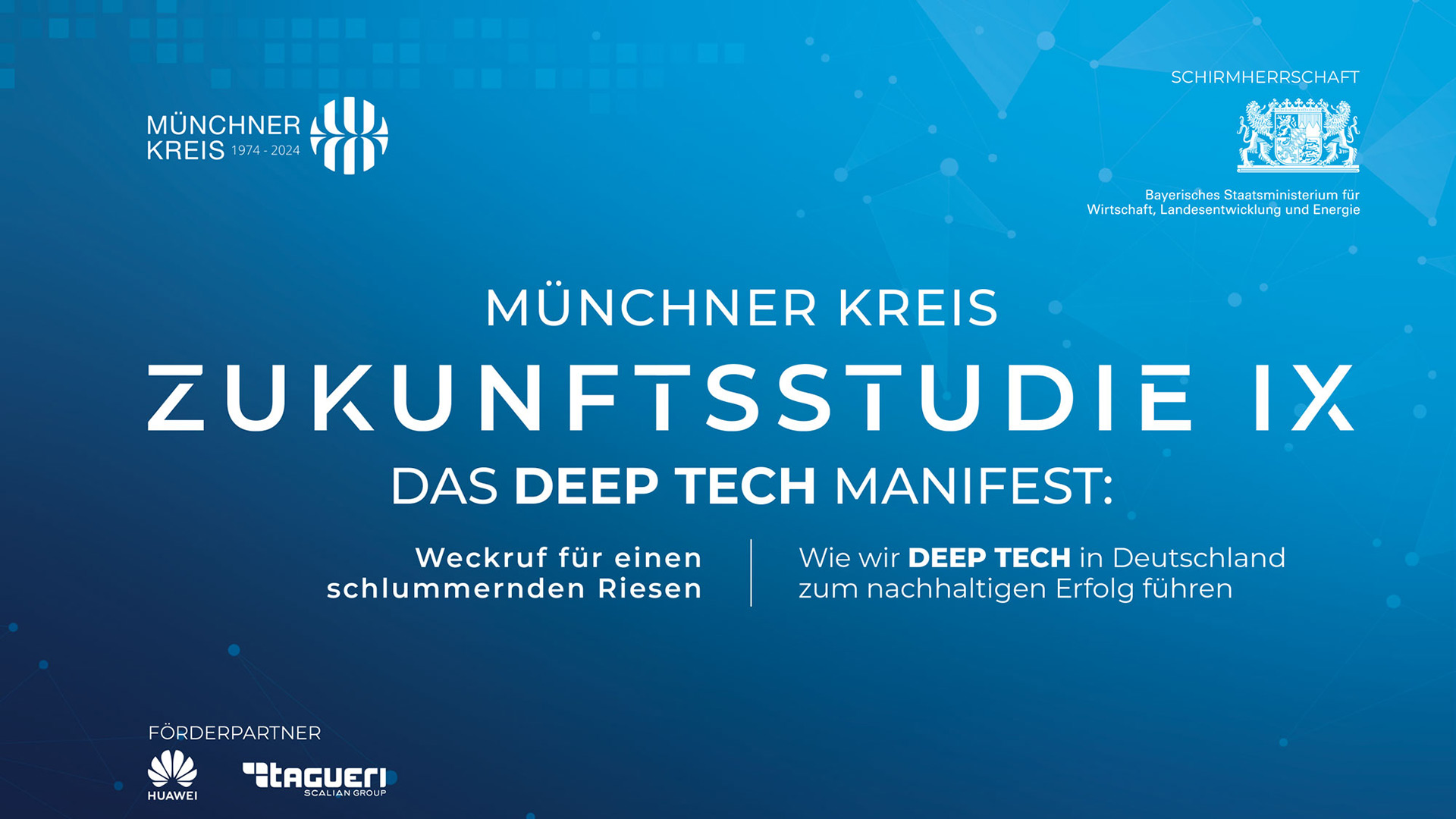Under the patronage of the Bavarian Ministry of Economic Affairs, Regional Development and Energy and with leading consortium partners from industry, the MÜNCHNER KREIS has published the 9th instalment of the future study. The study is dedicated to the question of how Germany can become a leading deep tech nation. It examines Germany as a business location in the context of the deep tech revolution and provides orientation for a sustainable future through technological innovations. The result is THE DEEP TECH MANIFESTO – a wake-up call for a slumbering giant. The study's findings show that Germany (still) has the potential to take a leading international position in deep tech. However, this requires a fundamental reorientation of research and innovation in order to focus activities and investments more strongly on deep tech.
Enormous efforts are needed to get back into the safe operating space for humanity. Technological progress, especially in the area of deep tech innovations, plays a central role here. One example among many to illustrate the potential is provided by Prof. Dominik Grimm from the TUM Campus Straubing and the Weihenstephan-Triesdorf University of Applied Sciences. He estimates that the AlphaFold 3 AI model published by Alphabet and Google in 2024 will lead to major breakthroughs in bioinformatics and structural biology. The ability to predict protein structures accurately and quickly could significantly accelerate and optimise the development of new bio-based technologies and products. This could enable a bio-based economy in which fossil raw materials are replaced by renewable biological resources.
